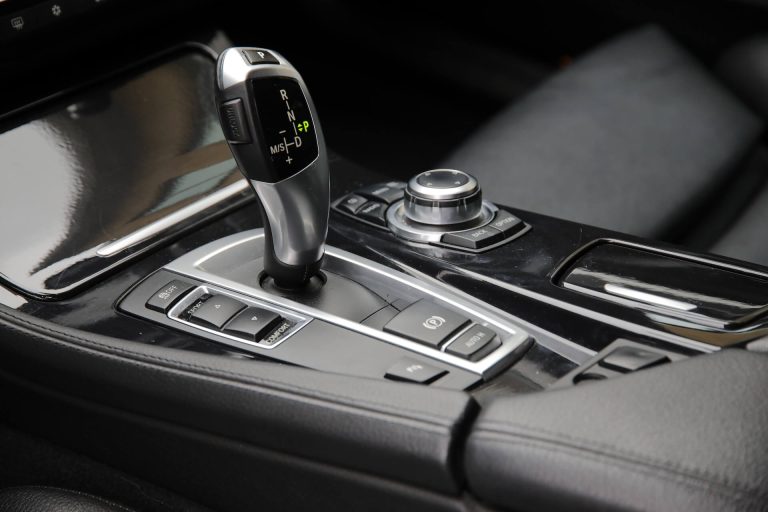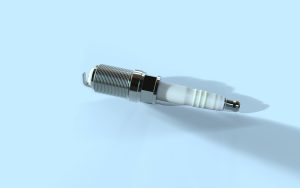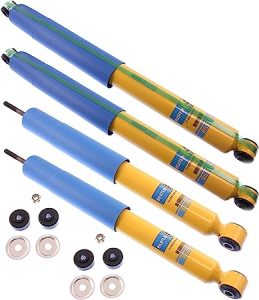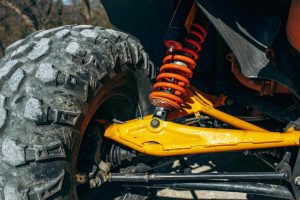Do you ever experience jerky gear shifts in your car? Are you tired of the stuttering starts and rough transitions between 1st and 2nd gear? Many drivers struggle with this issue, that’s why, we’re writing this guide. We’ll give you some practical tips on how to fix the 1st to 2nd gear jerk automatic transmission.
This can be a jarring and uncomfortable experience, especially starting from a stop. A few things can cause this issue, but always remember that if you experience transmission jerking, the problem can be minor or significant. So always, make yourself ready for the consequences.
Table of Contents
ToggleCauses of 1st to 2nd Gear Jerk in automatic transmission
1. Low transmission Fluid Levels
If you wonder can low transmission fluid cause jerking then then answer is yes. If your car jerks when shifting from 1st to 2nd gear, it could be because your transmission fluid is low. Your vehicle’s transmission fluid level can be found by checking the dipstick. If it is low, top it off and check if the issue is resolved. If not, a mechanic might need to flush and refill your transmission.
2. Transmission Software and Programming
An issue with the transmission software or programming is another potential factor. This is usually a much more severe issue requiring professional diagnosis and repair. Reprogramming the transmission control module (TCM) can sometimes solve the problem.
However, if the issue is more significant, the entire transmission control unit (TCU) may need to be replaced. In either case, this is not a DIY repair and needs to be completed by a skilled technician or the service department of the vehicle’s manufacturer.
3. Broken or frayed input shaft Coupling Cable
The input shaft coupling connects the engine’s input gear to the transmission’s output gear. When this cable is damaged, it can cause severe stuttering and jerking when you attempt to shift gears. This problem can lead to a broken transmission or even total failure if left unchecked.
First, try swapping out the cable to determine if your input shaft coupling is broken or frayed. You should replace the transmission entirely if that doesn’t fix the problem. Ensure you seek advice from a skilled professional before beginning this challenging repair.
4. Defective intermediate shaft Bearing
If you’re experiencing stuttering or jerking gearshift in your automatic transmission, there’s a good chance that the intermediate shaft bearing is defective. This type of bearing typically fails due to metal fatigue, which causes the shaft to wobble and cause the transmission to jerk. In most cases, replacing the bearing will cure the issue and return your car’s gearbox to its usual smoothness.
5. Clogged oil Filters
Clogged oil filters are one of the most common causes of stuttering and seamless shifts in automatic transmissions. When an oil filter becomes clogged, the engine can’t get the proper amount of oil to run smoothly. It can lead to hesitation and poor shifting.
6. Worn transmission Mount
The transmission mount secures the transmission, although it can deteriorate with time or sustain damage. This can cause the transmission to “float” or move around, making shifting gears difficult and causing the engine to rev up too high before shifting.
Have your transmission mount checked by a trained mechanic if you think that’s the issue. They can determine whether the mount has to be changed because it is worn out or damaged. They might occasionally be able to modify the mount to enhance shifting.
7. Dirty transmission Fluid
Dirty transmission fluid is one of the main causes of automatic transmissions’ 1st to 2nd gear jerk. When the fluid becomes dirty, it can cause many problems, including reduced lubrication, increased friction, and transmission failure.
It’s important to regularly flush your transmission fluid and replace it with fresh fluid to prevent these issues. It will ensure that your transmission is properly lubricated and functioning smoothly.
8. Failing Friction Plates
Friction plates are vital to your transmission and can wear out over time. When they start to fail, it can cause a jerking sensation when shifting gears. You may also notice your transmission slipping or your car taking longer to shift gears.
If you suspect your friction plates are failing, a mechanic must check them out immediately. If they are indeed failing, replacing them is the only way to solve the issue and prevent further damage to your transmission.
Also Read: How Do you Know If Transmission Is Going Out

How to Fix the 1st to 2nd Gear Jerk Automatic Transmission
Utilizing OBD systems to identify Potential Issues
One way is to plug a diagnostic tool into your car’s OBD port and read the codes it gives you. Another way is to download an app like Torque Pro onto your smartphone, allowing you to read the codes from your car’s OBD system wirelessly.
Once you have the code from your car’s OBD system, you can look up what that code means and act accordingly. It’s crucial to take your car to an auto repair as soon as possible if the code points to a serious issue so they can repair it. However, if the code is for a minor issue, you might be able to fix it yourself, or you could keep an eye on it to see if it worsens over time.
Software Updates and Recalibration
One of the most common causes of gear jerks is simply outdated software. In many cases, a simple software update from the manufacturer can solve the problem entirely. The dealership might cover this if your automobile is still under warranty.
Solenoid Replacement and Valve Body Repairs
If you’re noticing a stutter or jerk when your automatic transmission shifts from first to second gear, it’s likely due to an issue with the solenoid or valve body. Both of these components regulate the flow of transmission fluid and can become damaged or blocked over time. Replacing Solenoid and Valve Body proves very beneficial sometimes.
Changing Transmission Fluid
Transmission fluid degrades with time and loses its ability to cool and lubricate the transmission. It can lead to a “stuttering” or “jerking” sensation when shifting from first to second gear. Changing transmission fluid mostly fixes stuttering and jerking when shifting gears.

How do we prevent Automatic Transmission from Jerking?
If you’re experiencing stuttering or sudden gear shifting in your automatic transmission, it may be time to take some preventive steps. It’s essential to understand the cause of the problem and take appropriate action before it worsens. A few measures are listed below to assist in stopping automatic transmission jerk:
- Keep your fluid levels topped off: A low fluid level can cause the transmission to chatter and shift erratically. Make sure to check your fluid level and add more, if necessary, monthly.
- Clean and lubricate your gears regularly: Dirt, grime, and oil will build up over time, causing the gears to wear more quickly and creating problems with the automatic transmission shifting. Clean out all the gunk using a clean rag and a little lubricant, then apply a light coating of grease to each gear wheel.
- Keep your engine tuned up and maintenance-free: Over time, dirty oil can damage the engine’s internal parts – including the automatic transmission – which can lead to erratic shifts and stuttering. Regular tune-ups by your mechanic can help keep everything running smoothly in your car
- Avoid Aggressive driving habits: Driving aggressively – hard braking, sudden turns, and accelerating hard – can also cause problems with the automatic transmission. Stay smooth and steady on the road to avoid any issues.
- Use best quality Transmission Fluid: Not all transmission fluids are created equal. Make sure to use a quality product that is designed explicitly for automatics. This will help to protect the gears and keep them running smoothly.
Conclusion
The 1st to 2nd gear jerk in your automatic transmission can be a nuisance, but it doesn’t have to be. Following the tips outlined in this article, you can easily ensure that your car shifts gear smoothly and without any jerking or stuttering. With proper vehicle maintenance and regular check-ups, you should be able to enjoy smooth driving for many years down the road!
Frequently Asked Questions
How often should transmission fluid be changed?
Transmission fluid should be changed every 30,000 miles or every two years, whichever comes first. If you frequently drive in stop-and-go traffic, extreme heat, or cold, you may need to change your transmission fluid more often. It is also recommended to have a professional check your transmission fluid level and condition every 10,000 miles or once a year.
Can I fix the jerk myself, or do I need professional help?
If you are familiar with basic mechanics, you can resolve the problem on your own. However, it is advised to have a professional work on your vehicle if you are unsure of your skills. You can check and adjust a few things if the issue is with your car’s shifting. First, check the transmission fluid level and ensure that it is full. If it is low, topping it off may solve the problem.
Next, check the transmission filter to see if it needs to be replaced. A clogged filter can cause shifting issues. Inspect the shift cables and linkages to ensure they are all connected properly and adjusted correctly. If you have looked into every possible possibility and the issue still exists, there may be a problem with the transmission itself, necessitating the assistance of a specialist.
Can a software update solve the problem?
Depending on the make and model of your car, you can fix the issue with a software update. The most common type of software that can improve your transmission’s performance is called a “driver update.” Driver updates are designed to improve the overall smoothness and responsiveness of your car’s automatic transmission by correcting errors or glitches in the software that controls it.
If you have a driver update available, installing it may fix the jerking and stuttering problem. If you don’t have a driver update available, or if it doesn’t resolve the issue, other remedies may include:
- Changing out your transmission fluid.
- Checking for bent or broken gear teeth.
- Replacing your automatic transmission altogether.
Can driving habits contribute to the jerk?
Certain habits, such as aggressively accelerating and braking, can cause the car jerks when shifting from 1st to 2nd. You must improve your driving techniques and master smooth gear changes if you want to avoid this from happening.







